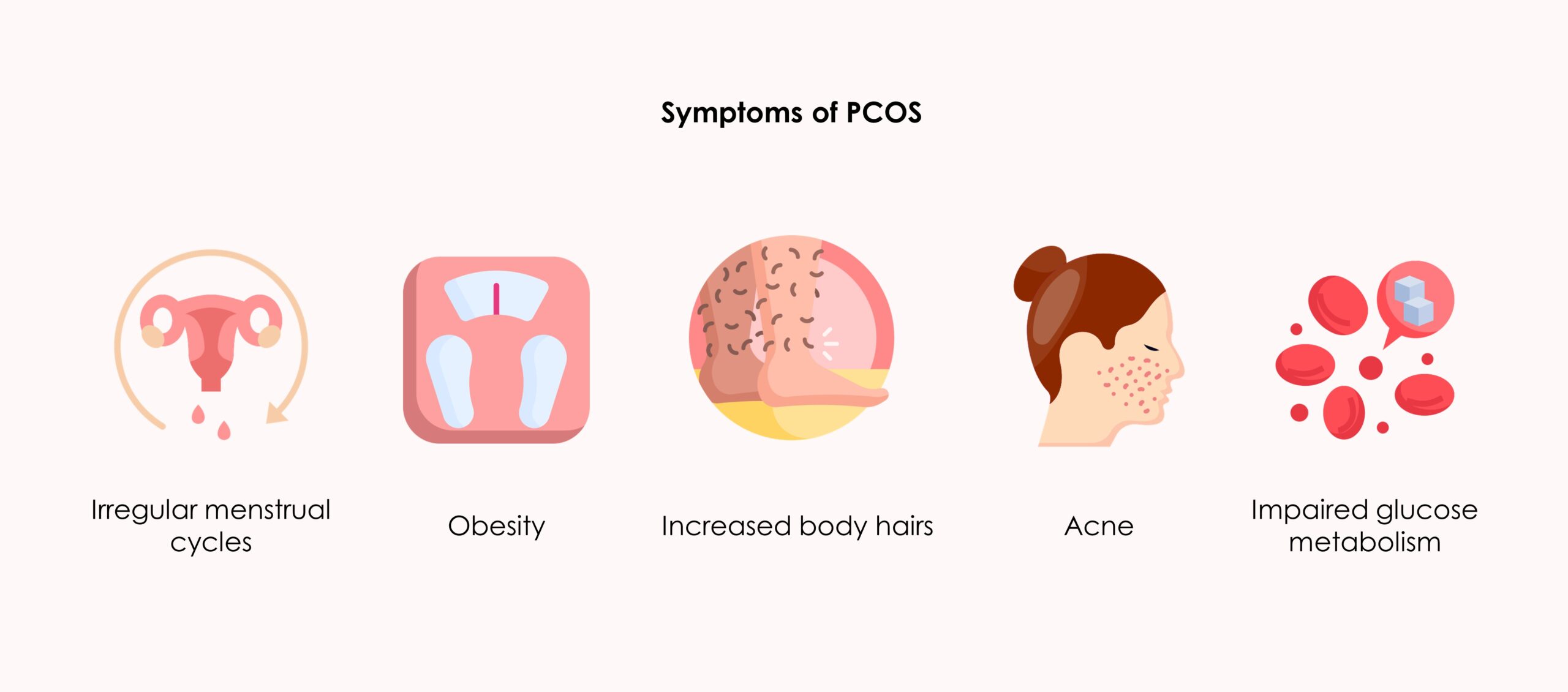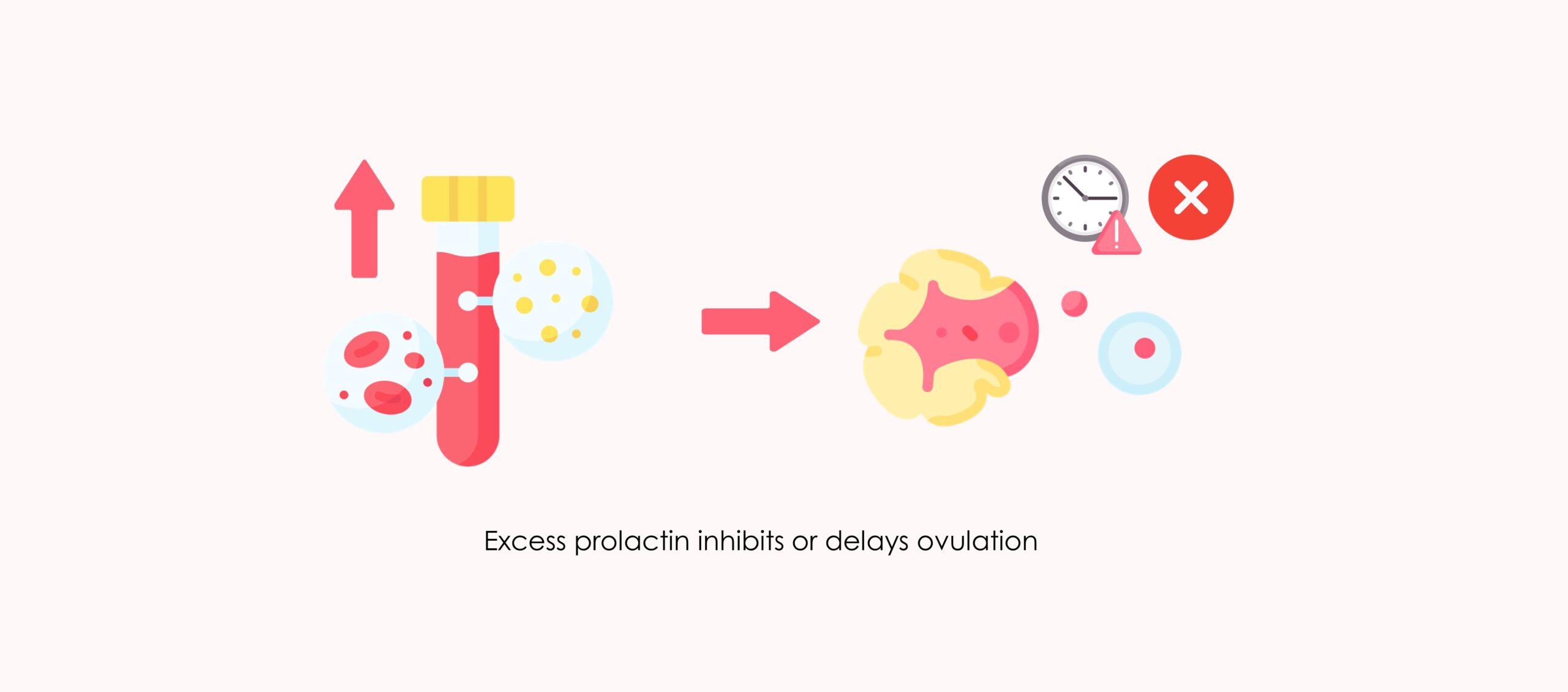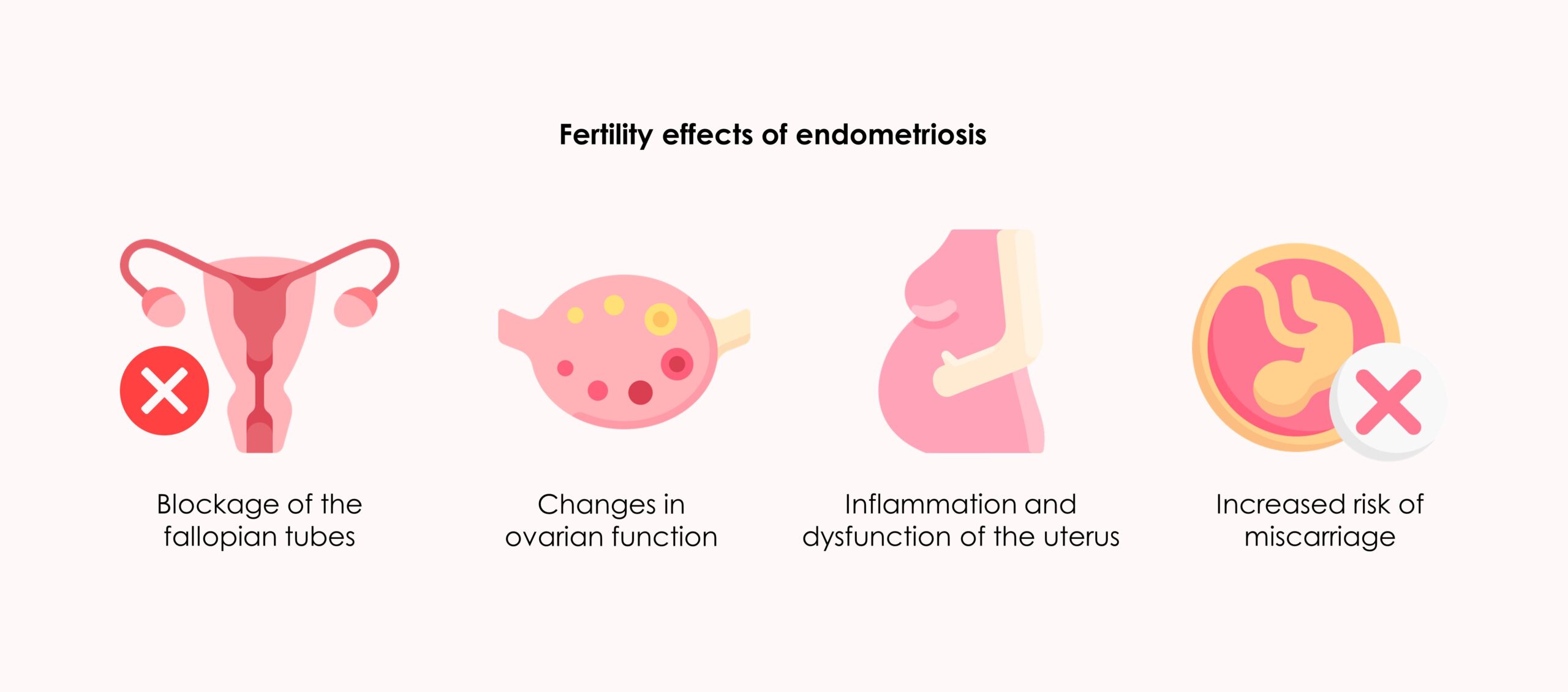In this article we look at conditions that are often associated with female fertility problems: PCOS, POI, hyperprolactinaemia, thyroid disorders and endometriosis.
PCOS and female fertility
Polycystic Ovarian Syndrome (PCOS) is an endocrine disorder that affects the ovaries and involves a hormonal imbalance that results in difficulty in ovulation, among other alterations. Seventy-five percent of women with PCOS have difficulty in getting pregnant.

Symptoms of PCOS include:
- Oligomenorrhoea or amenorrhoea: irregular periods and time periods without menstruations.
- Obesity
- Acne
- Hirsutism: increased hairs growth
- Impaired glucose metabolism
In many cases pregnancy is achieved spontaneously, otherwise it can be achieved with the help of assisted reproduction techniques, with medications that induce ovulation or with more complex techniques.
Possibility of pregnancy with POI
Premature ovarian failure, also known as Primary Ovarian Insufficiency (POI), is the cessation of ovarian activity before the age of 40 due to removal or surgery on the ovaries, chemotherapy or radiotherapy. POI can also have an autoimmune, infectious, genetic or unknown origin. Premature ovarian failure is often accompanied by alterations in the microbiota and altered hormone levels.
There are no treatments to reverse POI, but there are adjuvants that can significantly improve ovarian response in the case of in vitro fertilisation (IVF). This is the case of Coenzyme Q10, melatonin, resveratrol and/or specific probiotic strains. Usually the most effective assisted reproduction technique is IVF with donated eggs (eggdonation).
Hyperprolactinaemia and pregnancy
Prolactin is the hormone that triggers milk production in women after childbirth, but outside this situation it has a negative effect on fertility. Prolactin may be altered by:
- Stress
- Sleep deficiency
- Some medications
- Pituitary gland tumours
- Kidney or adrenals insufficiency
- Diet with excessive fat intake

In women, an excessive prolactin level inhibits or delays ovulation and in men it can affect erectile function. Prolactin regulation is relatively straightforward, but it should be detected when pregnancy is sought.
Hyperthyroidism and hypothyroidism
Both hyperthyroidism and hypothyroidism can have some negative effects on men’s and women’s fertility. In women it can cause irregularities in the menstrual cycle, making conception difficult. Untreated hypothyroidism during pregnancy may increase the risk of miscarriage, premature birth, pre-eclampsia and alterations in foetal development.
In men, hypothyroidism can affect sperm production and sperm quality, leading to fertility problems. Both excess and deficient thyroid hormone production can be treated, and once its function is normalised, fertility is restored.
Infertility due to endometriosis
Endometriosis is a situation in which the tissue that normally lines the inside of the uterine cavity, the endometrium, appears in other parts of the female genital tract, which can affect fertility in the following ways:
- Blockage of the fallopian tubes, which prevents or hinders the passage of eggs and sperm, affecting fertilisation.
- Changes in ovarian function, affecting egg quality and ovarian function.
- Inflammation and dysfunction of the uterus interfering with embryo implantation.
- Increased risk of miscarriage.

Not all women with endometriosis are sterile, but if you suffer from endometriosis and cannot get pregnant, you should consult a gynaecologist specialised in reproduction and with assisted reproduction techniques pregnancy can usually be achieved.
In any case, once the normal pregnancy search time has elapsed, it is very important to undergo all the necessary fertility tests to rule out any disease that may hinder pregnancy.





No hay comentarios